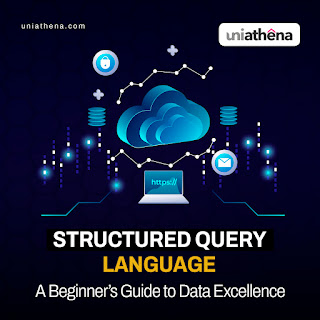Top 9 Applications of SQL
Structured Query Language, or SQL, is one of the most powerful programming languages for handling data in relational Database Management Systems. Big and intricate datasets can be managed with SQL. Because it is comparatively simple to learn, many people choose to use it for Data Analysis and Database Administration.
We will examine the uses of SQL in this article, along with the best SQL from beginner to advanced course to begin with.Applications of SQL
Web Development: A lot of websites store user information, content, and other important data in SQL databases.
Data Analysis: To search big datasets, extract insights, and produce reports, Data Analysts utilize SQL.
Enterprise Systems: To handle everything from inventories to customer relations, large businesses rely on SQL databases.
Banking: To handle client information, financial activities, and transactional data, banks employ SQL databases.
Healthcare: SQL databases are frequently used in hospital administration systems, medical records, and patient data.
Customer Relationship Management: Sales information, marketing efforts, and customer interactions are stored in SQL databases by CRM systems, such as Salesforce.
E-commerce Sites: Product listings, customer reviews, and order histories are managed by online shopping platforms using SQL.
Social Networks: User profiles, posts, and interactions are managed using SQL databases on platforms such as Facebook and Twitter.
Educational Platforms: Student progress, assessment results, and course materials are all stored on SQL-powered e-learning platforms.
Getting Started With SQL Certification Course
SQL is an excellent skill that can lead to a variety of job options. Whether your goal is to work as a Software Developer, Data Analyst, or just to better comprehend data, knowing SQL is a must.
The UniAthena SQL certification courses for beginners provide a comprehensive journey through fundamental database concepts, encompassing data, fields, records, and databases. The free learning course also delves into advanced SQL concepts, including constraints, aggregate functions, various types of Joins, stored procedures, Views, and Indexes.
The free short course has simple, direct, and to-the-point course delivery that is entirely online and self-paced. Register now and boost your SQL skills in 2 weeks.




Comments
Post a Comment